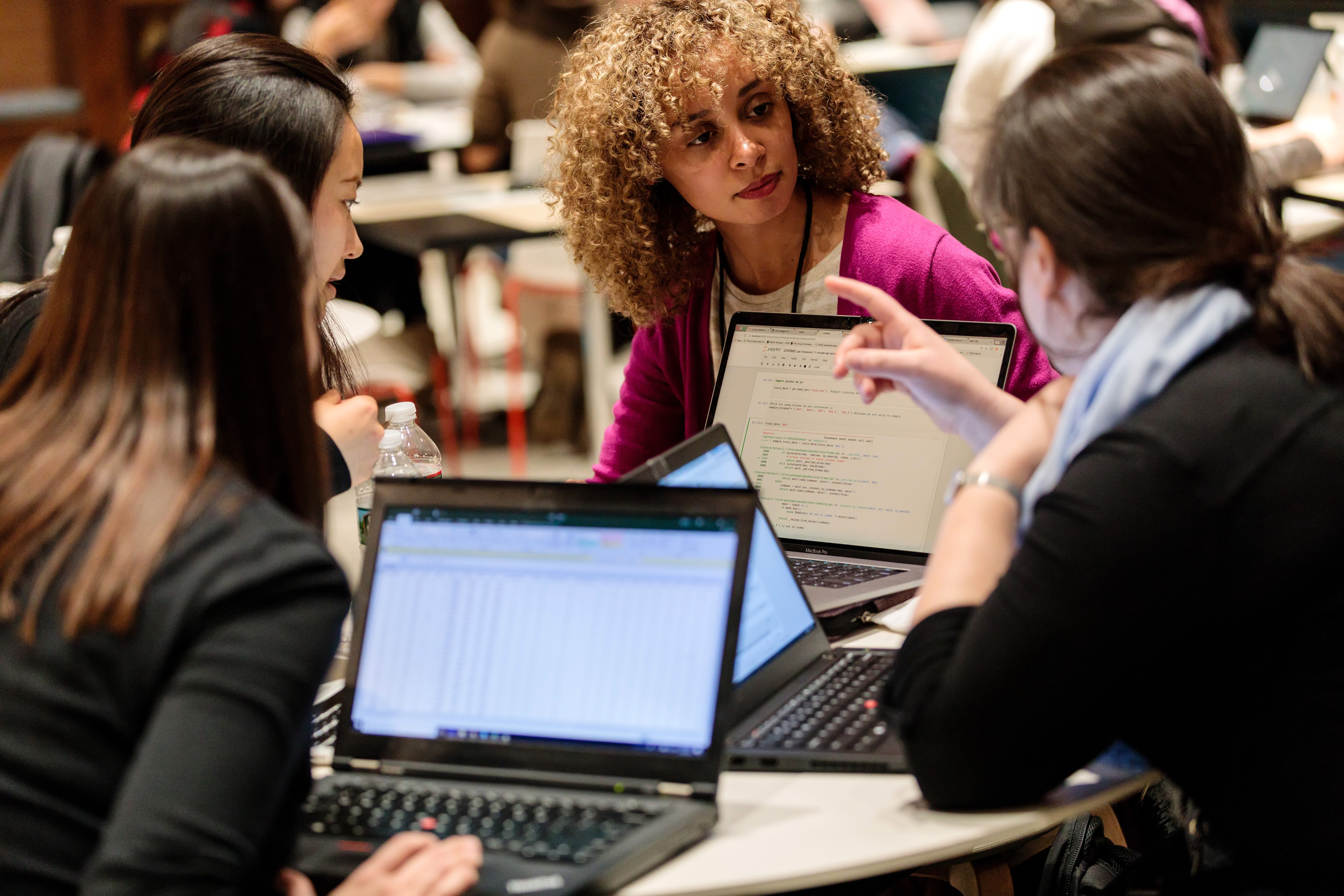How can we help the world’s poorest people participate more fully in their local economies?
Last Monday, February 12, women from all walks of life came to Microsoft New England R&D (NERD) Center to explore ways predictive analytics can be used to solve this issue. As part of the global Women in Data Science Conference (WiDS) hosted at Stanford University and at the Microsoft New England R&D center on March 5, we were excited to bring together women for a WiDS 2018 Data Workshop and conference pre-event.
The Datathon, a new feature for the 2018 WiDS conference, is a competition that asks data scientists of all levels to analyze data collected by InterMedia with the goal of helping people take advantage of mobile phones and other digital technology to alleviate global poverty. 
Our Data Workshop oriented participants to the competition and provided insights into the challenge by guiding women through data exploration/visualization, data cleaning, feature engineering, and modeling. Led by Weiwei Pan from Harvard Institute of Applied Computational Sciences and Anastasiya Belyaeva from MIT Institute of Data, Systems and Society, attendees started the evening with an introductory workshop and applied exercises. Attendees then broke off for a working dinner, where they formed teams, networked, and started to develop their solutions for the datathon.
“Having a workshop on a particular data problem is useful,” Belyaeva told us. “Some people may not want to get into data science because it seems really fancy, but these types of events can inspire people who may be really good at it, yet haven’t tried out their potential in these fields. It lets beginners enter the field, which is really useful for them, and eventually useful for furthering data science.”
Attendees had varying levels of machine learning and data experience. While some were data pros, we saw women who had never analyzed data sets before; one attendee worked on her dissertation alongside the brainstorm while another learned how to model data for the first time.
“I deal with data daily,” said Mimoza Marko, graduate student and research assistant at Bentley University, as she worked alongside a first-time data scientist on her team, showing her how to filter through data by value.
“It seems like more people are interested in answering questions in a data-driven way,” explained Pan. “There’s a unison of people trying to solve all these problems that we thought were too intractable to understand. It helps to make people feel like they can make a dent, even in small ways.”
To close out the night, participants gathered for brief presentations of the work and solutions each team put together. We saw a variety of approaches, from data cleaning to considering data gaps as context to building predictive models from already-existing data. As each team shared their observations and questions, we saw a common thread among the teams: each was ready to take on a dataset with confidence and from a new perspective.
“Not everyone in a workshop or a class I teach will walk away an expert, but it’s really nice to be able to demystify concepts,” says Pan. “In any professional field, you say all these fancy words that condense complicated ideas into short phrases, but it shuts a door on new talent. I enjoy the opportunity to give people a point of access. I enjoy giving people the ‘I can probably do that’ feeling.”
We’re excited to see what our teams of data scientists bring to the March 5 conference, both at Stanford and at our regional event here at NERD. Learn more about WiDS in Cambridge here: https://www.widscambridge.org.


